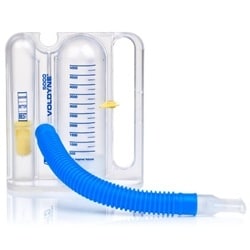Inpatient care after surgery
You will be monitored closely after surgery. You might have a heart monitor, if ordered by the surgeon. For safety reasons throughout your hospital stay, staff will repeatedly ask for your name and date of birth. We will take your blood pressure, heart rate and oxygen level frequently right after surgery, then decrease frequency to every four hours and as needed. Your blood sugar may be tested regularly, if ordered by the surgeon. Laboratory and imaging tests are usually done in the early morning so that the surgeon can have the results available when checking up on you.
During your hospital stay you will be seen daily by a surgeon, their nurse practitioner or their physician assistant.
Visiting hours are open, although after 9 p.m. guests will need to enter the hospital through the Emergency Department. It is important to make time to rest, however, so that you have energy for therapy and to help you heal. Talk with the nurse about having a loved one stay the night. Please know that your care team will be in and out of your room frequently to monitor you and keep you safe, so it will not be as quiet as your bedroom at home. To further encourage your rest and healing, we can provide you with comfort items to decrease the noise level. Visiting hours for intensive care units may vary depending on the current activities within the unit.
The nurse or nurse’s aide will check on you at regular intervals — every hour during the day and every two hours at night. They will ask you about pain, make sure you’re comfortable and help you to the bathroom as needed. Your nurses will discuss your plan of care, usually at your bedside, during the shift change from 6:45 to 7:15 a.m. and from 6:45 to 7:15 p.m.
Quiet time occurs during shift change (noted above) and for a short time afterward to allow the nurses time to assess their patients so they have the most current information to provide you with when you call. The nurse will not be available for questions or updates regarding your loved ones by phone during this time. We encourage you to pick one family spokesperson to talk to the nurses and the surgeon about your care. To share information over the phone, staff members will require a patient privacy code; this is to protect your privacy and personal health information.
Activity and comfort
Even though you are in the hospital, activity is important; you should walk at least three times a day. Staff will encourage you to sit in a chair for meals. Your diet may vary, depending on the surgery; please discuss this with the nurse. Depending on your needs, you may be seen by therapists, which could include a respiratory therapist, a physical therapist, an occupational therapist or a speech therapist.

Incentive spirometer
Coughing, deep breathing and using the incentive spirometer are important to your recovery and will help prevent pneumonia. You should do 10 breaths every hour while you are awake. If you do not want to cough, deep-breathe or use the incentive spirometer because of pain, please tell the nurse.
It is unrealistic to expect to have no pain. Your care team will work to minimize your pain as much as possible so that you can rest and participate in therapy.
Transitioning home
Staff will begin working on your transition home from the hospital the day you arrive. Prior to your discharge, we want to ensure that you have a plan for leaving the hospital. This includes arranging for a ride, scheduling any equipment to be delivered and deciding where to get new medications filled. Our discharge planners can help arrange services you may need, such as home health care, oxygen or other supplies.
The surgeon will determine when you should increase your activity level and may change or add new medications; please tell us what pharmacy you use. The nurse will discuss any medication changes, follow up appointments and home care instructions on the day of discharge, which will be explained in the paperwork you take home.